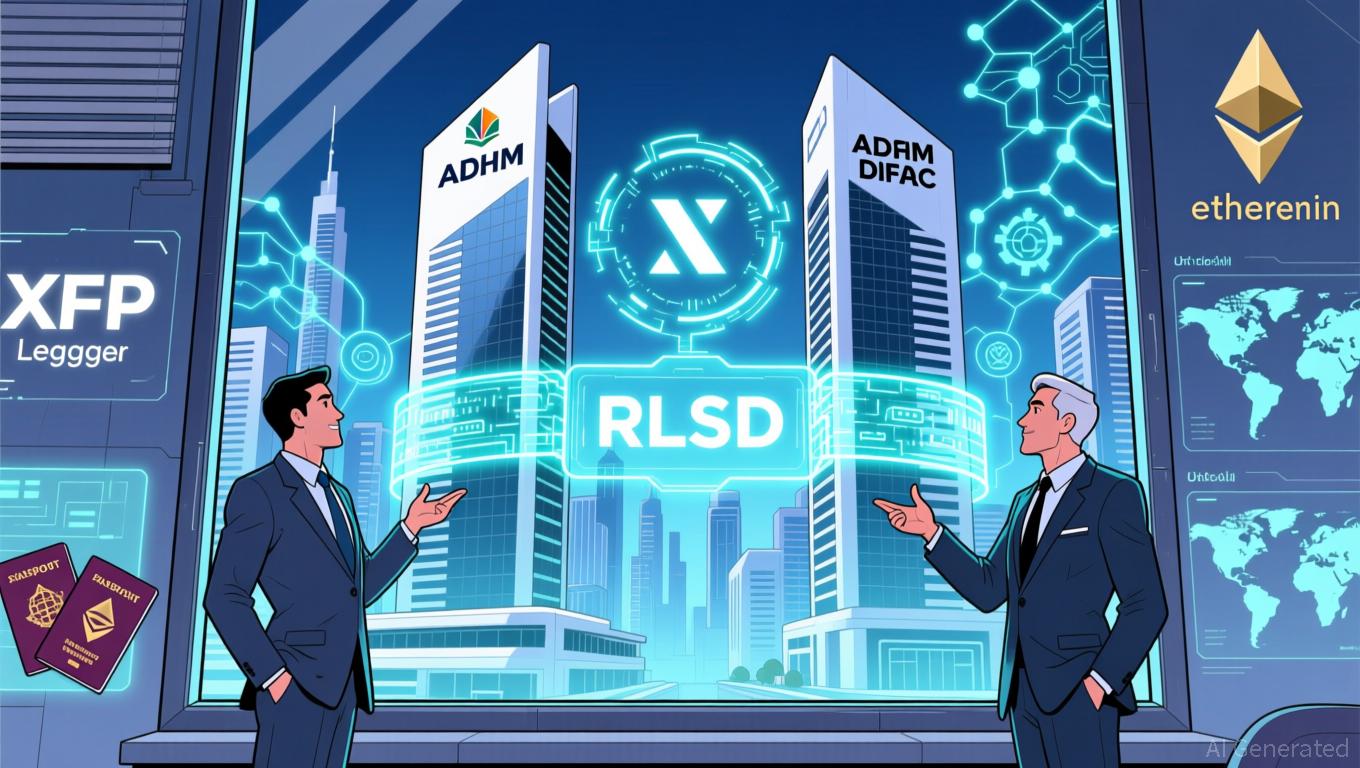South Korea’s Naver and Dunamu Join Forces to Take On US Stablecoin Leaders Through AI and Blockchain Innovation
- Naver and Dunamu’s $6.8B merger creates a $13.6B fintech entity to boost AI/blockchain integration, targeting global financial infrastructure innovation. - The merged firm plans a Korean won-pegged stablecoin to challenge US dollar-backed tokens, aligning with national sovereignty goals but facing Bank of Korea regulatory barriers. - A $7B investment in AI/blockchain research and talent aims to position South Korea as an Asian tech leader, despite stalled legislation and global stablecoin liquidity gaps.
Naver Corp. and Dunamu Inc. are poised to transform South Korea’s fintech and cryptocurrency sectors after confirming a historic merger that will channel $7 billion into AI and blockchain projects,

This merger highlights South Korea’s determined efforts to establish a homegrown stablecoin market, a key initiative for President Lee Jae Myung to challenge the prevalence of U.S. dollar-based tokens. The two firms intend to introduce a stablecoin tied to the Korean won,
This investment signals a calculated move toward merging AI and blockchain technologies.
This development also escalates competition with KakaoBank, which has already moved its own won-backed stablecoin project into the development phase.
Regulatory ambiguity continues to pose significant obstacles.
As both companies get ready to officially announce the merger, the outcome will depend on their ability to balance innovation with regulatory demands. The merged group’s success in navigating South Korea’s conservative monetary policies while competing with international tech leaders will be crucial in determining whether it can truly transform the nation’s financial industry.
Disclaimer: The content of this article solely reflects the author's opinion and does not represent the platform in any capacity. This article is not intended to serve as a reference for making investment decisions.
You may also like
ZK Atlas Enhancement: Driving Institutional Embrace Amid the Blockchain Scalability Competition
- ZKsync's Atlas Upgrade solves throughput bottlenecks with Airbender RISC-V zkVM, enabling 15,000+ TPS at $0.0001 per transaction. - Modular ZKsync OS reduces gas fees by 70% since 2023, enabling real-time financial applications while maintaining regulatory compliance. - Deutsche Bank and UBS test ZKsync for asset tokenization, highlighting its institutional appeal through privacy-preserving ZK features and sub-second finality. - Upcoming Fusaka upgrade aims to push TPS to 30,000 by December 2025, but reg

Bitcoin Updates: Bitcoin Receives Major-Cap Status as Nasdaq Increases Options Limits Fourfold
- Nasdaq seeks SEC approval to quadruple IBIT options limits from 250,000 to 1 million contracts, aligning Bitcoin ETF with high-liquidity assets like EEM and GLD . - The proposal cites IBIT's $86.2B market cap, 44.6M daily shares traded, and industry support for addressing institutional demand amid Bitcoin's rapid financial instrument maturation. - Experts argue higher limits will reduce spreads, enable sophisticated hedging, and treat Bitcoin as a "mega-cap asset," while Nasdaq also seeks unlimited FLEX

XRP Update: ADGM's Green Light for RLUSD Strengthens UAE's Pursuit of Digital Financial Growth
- Ripple's RLUSD stablecoin secured ADGM approval as an institutional fiat-backed token in November 2025, following DIFC's June 2025 greenlight. - The UAE's dual regulatory endorsements position RLUSD for cross-border settlements, with $1.2B market cap driven by institutional demand for collateral and treasury tools. - ADGM's stringent oversight framework requires full reserve backing and AML compliance, aligning RLUSD with global standards under NYDFS charter . - XRP prices surged 24% in late 2025 amid $1

Bitcoin Updates: SpaceX Strengthens Bitcoin Holdings as Institutions Adjust Portfolios
- SpaceX transfers 1,163 BTC ($105M) to new wallets, increasing total holdings to 6,095 BTC ($556.7M) amid Bitcoin's rebound above $91,300. - Institutional Bitcoin interest grows as ETFs see $2.6B outflows, contrasting with SpaceX's secure custody strategy mirroring Tesla's $1.05B BTC treasury management. - Analysts view the activity as routine security adjustments rather than liquidation, highlighting corporate Bitcoin adoption focused on treasury diversification over speculation. - Market debates persist
